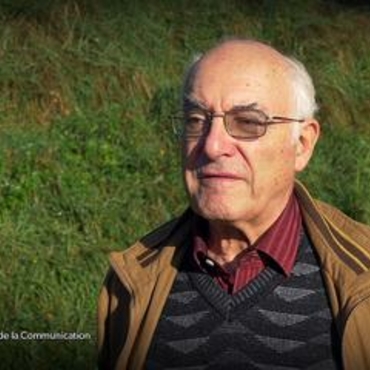
- Home
- Discovery and Conservation
- The Discovery
On Sunday 18 December 1994, on the Cirque d'Estre, Jean-Marie Chauvet, led his two friends Éliette Brunel and Christian Hillaire towards the cliffs: a slight breeze coming out of a small hole, at the end of a little cave drew his attention, and he wanted to investigate. All three of them are passionate speleologists, and have had countless discoveries and firsts. It was late afternoon, and the little cave into which they entered was already known, located very close to a major hiking trail. But there, behind the fallen rocks, they were sure there was something, so they dug and unblocked a passage, then slipped inside. They found themselves looking out over a dark, empty space. They didn't have the equipment to continue. It was already dark, and they went back to their vehicles, took the essentials, and after hesitating a little, eventually returned to their discovery. They used their speleological ladder to descend, and discovered a vast chamber with a very high roof, filled with splendid, glimmering concretions. They pushed on in single file towards another, equally vast chamber and admired the unexpected geological beauty around them. They also noticed animal bones. They explored almost the whole network, and on their way back, Éliette noticed a small, red, ochre mammoth on a rocky pendant in the beam of her headlamp: "They were here!" she cried out, and from then on, they carefully looked at all the walls, discovering hundreds of paintings and engravings.
This moment changed their lives. Upon their return, in Éliette's home, they told her daughter about their adventure. She didn't believe them and made them return to the cave: it was past 9 PM, and despite their fatigue and emotion, they agreed. They made further discoveries, when they came out, despite their amazement, they also felt somewhat anxious faced with such responsibilities. The following Saturday, on Christmas Eve, they decided to protect the ground by covering the trace of their footprints with a plastic strip, thus setting out the path which all entering the cave from then on would take (the stainless steel gateways installed a few years later also follow this course).
After their discovery was announced, Jean-Pierre Daugas, Heritage curator at the Rhône-Alpes regional cultural affairs Department alerted Jean Clottes, then scientific adviser to the Ministry of Culture and specialist in decorated caves, to get it authenticated. On 29 December 1994, led by the discoverers, the expedition was launched.

